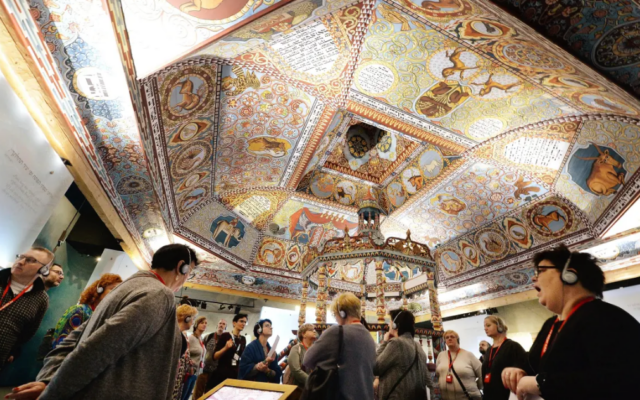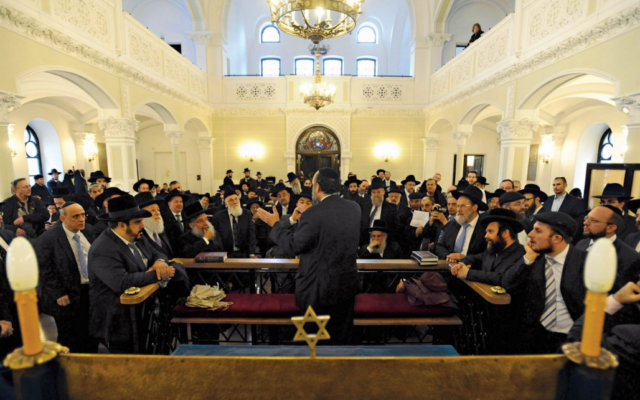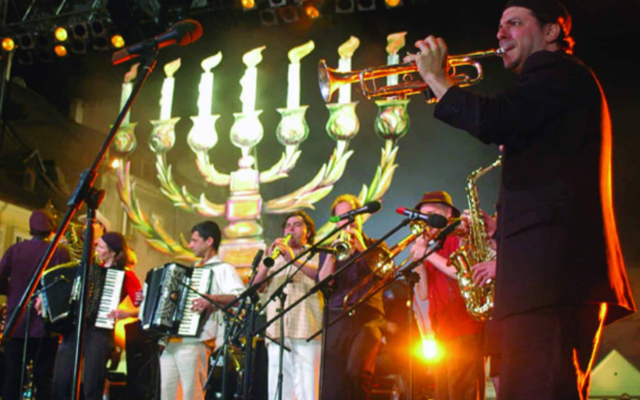Emory Students Study Jewish Life in Poland
Ten-day trip in mid-May, sponsored by Emory’s Tam Institute for Jewish Studies, helped students re-examine Jewish life in Eastern Europe.
For the first time since it was founded 24 years ago, the Emory University’s Tam Institute for Jewish Studies has sponsored a 10-day trip abroad for students to study Jewish life in Eastern Europe. The trip was led by Ellie Schainker, an Emory history professor with a dual appointment in Jewish studies.
Over a 10-day period, beginning in mid-May, 16 students, many of whom had taken professor Shainker’s course about Jews in Eastern Europe, visited both Krakow and Warsaw in Poland. Both cities were important cultural and religious centers for the large Jewish community, which totaled more than 3.3 million in Poland before the Holocaust. According to Schainker, the goal of the trip was not only to look at the country’s history, but to examine Jewish life today.
“We wanted to take the story of Jewish life to the contemporary moment,” Schainker said, “and to look at Polish Jewish life today. We wanted to really ask questions about memory and memorialization, now, about the effect of the Nazi occupation, and also about Jewish life under communist domination.”

The trip began in Krakow, which is the well-known setting for Steven Spielberg’s 1993 drama, “Schindler’s List.” Because Krakow was occupied early in the war by the Nazis and because it wasn’t bombed, its Jewish quarter and some of its important Jewish buildings and its Jewish ghetto survived.
Today, Krakow is the home of one of the largest Jewish cultural festivals in the world. The festival was started in the 1980s by non-Jews and attracts large numbers of Poles who are attracted to the klezmer music of the past as well as performances of such musical dramas as “Fiddler On The Roof.”
For Schainker and her students, the success of the festival has been one indication of the new dynamism that is developing around Jewish life in Poland today.
“There is a kind of a breath of new life about Jewish identity, about Jewish pride.
The Jews are also working alongside of non-Jewish Poles who are invested in Jewish heritage and Jewish renewal. And so, the combination of that…to me was…really interesting and actually pretty dynamic in terms of when we think of renewal writ large,” Schainker said.
Still, for students like Sasha Rivers, who majored in Jewish studies at Emory and graduated this year, there is no escaping the realization of what was lost during the Holocaust years.
“While I understand the frustration that many Jewish Poles have with the concept that Poland is a Jewish graveyard, this does not change the fact that it is. I think there is still much to be done, not only with Holocaust remembrance and education in Poland, but with post-war reconciliation in general.”

Jewish life in Poland suffered not only through the devastation of the Holocaust but by the official program of antisemitic purges by the Communist government in the post-war years. By 1968, it led to the expulsion of 13,000 Jews, many of whom had to renounce their Polish citizenship to be allowed to leave the country. It was a cruel blow for so many of them, who had survived the Holocaust only to see themselves persecuted yet again.
For Eric Steinberg, who is beginning his third year at Emory in August, the trip was a real eye-opener.
“I never knew much about the thriving Jewish life in Europe before the war, and I had never stepped foot or even considered visiting Germany, the Czech Republic, or Poland – sites of the Shoah, until just a year ago. So, if there is any aspect of this trip that I know will stick with me, it is that I was able to break through this apathy by confronting Poland’s Jewish past and present firsthand.”
I never knew much about the thriving Jewish life in Europe before the war, and I had never stepped foot or even considered visiting Germany, the Czech Republic, or Poland – sites of the Shoah, until just a year ago. So, if there is any aspect of this trip that I know will stick with me, it is that I was able to break through this apathy by confronting Poland’s Jewish past and present firsthand.
Schainker points out that Poland is developing into one of the most important centers in Europe for the academic discipline of Jewish studies. She and her group visited an institute for Jewish studies at a local university and had an opportunity to learn alongside students and discuss Jewish studies with them.
In Warsaw, they met with local students who belonged to the local Hillel chapter and had Shabbat dinner with them. The Emory professor believes it’s all part of a major effort by the small Jewish community in Poland to go beyond the memory of the Holocaust there.
“Jews aren’t just about the Holocaust in Poland, there’s this rich culture that is something to celebrate in Poland as well. I think there’s a bit of a nostalgia for the fact that Poland was once a very religiously and ethnically diverse place before the war. I think there’s a more pluralistic vision today of what Poland could be.”




comments